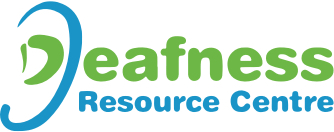
On BBC Radio Four this week, ‘File on Four’ covered a story about ‘Poor’ NHS interpreting services leading to misdiagnosis and deaths. Whilst this episode talks about speaking interpreters, of other spoken languages, many of the D/deaf community can relate to circumstances where the NHS has failed to meet their chosen language of BSL, and lack of support in ensuring the patients needs and communication is not explained properly and thoroughly.
If you have experience poor standards of communication in the NHS you can read more about the Accessible Information Standard here: https://deafnessresourcecentre.org/accessible-information-standard/ The Accessible Information Standard (AIS), introduced in 2016, gives D/deaf and disabled and people with the legal right to receive health and social care information and communications in a format that works for them.
You can follow the ‘File on Four’ episode about poor interpreting services on BBC sounds here: https://www.bbc.co.uk/sounds
And read more about the problems faced here: https://www.bbc.co.uk/news/uk-england-bristol-66605536.
If you require support from Deafness Resource Centre Language Service Professionals do let your care provider or other professional service know you require an interpreter – below explains the process of how they book and what type of interpreter you can have access to.
A GUIDE TO: Providing Communication Support for Deaf or Hard of Hearing Patients
HOW TO BOOK:
- Phone– 01744 23887 and ask for the Communications Service
- Email – evans@deafnessresourcecentre.org
- Direct Contact is Communications Service Co-ordinator: Evonne Evans
WE WILL NEED TO KNOW:
- The date and time of the appointment
- Type of communication support required (see below)
- The name of the patient where possible, or at least their initials.
- An authorisation name, or order number
- A brief description of the nature of the appointment (so that I can pass on to the interpreter)
- Any personal needs or preferences of the patient (e.g. female only language professional is required)
WHAT TO EXPECT FROM US:
- We will deal with your request and contact you to confirm that a language professional has been booked
- We will deal with all bookings in the strictest confidence and only use information to assist in the accuracy of the assignment
- A personalised service from a local, well established supplier
DIFFERENT TYPES OF COMMUNICATION SUPPORT
- British Sign Language (BSL) Interpreters – Experienced and fully qualified language professionals to facilitate in situations which require British Sign Language
- Lip Speakers – To assist those who prefer to lip read
- Deaf-blind Interpreters – Experienced professionals who provide hands on and Deaf-blind manual to assist Deaf-blind people
NOTES
- The average lip-reader can only read about 33% of what is actually said.
- Deafened or hard of hearing people may or may not wear hearing aids. Even if someone is wearing a hearing aid, it does not always mean they can hear and understand well.
- Profoundly Deaf British Sign Language (BSL) users will need a Qualified BSL Interpreter to fully communicate. For Deaf people, English is their second language and they might not have a good understanding of it – either spoken or written.
For more information you can call 01744 23887 or email evans@deafnessresourcecentre.org

